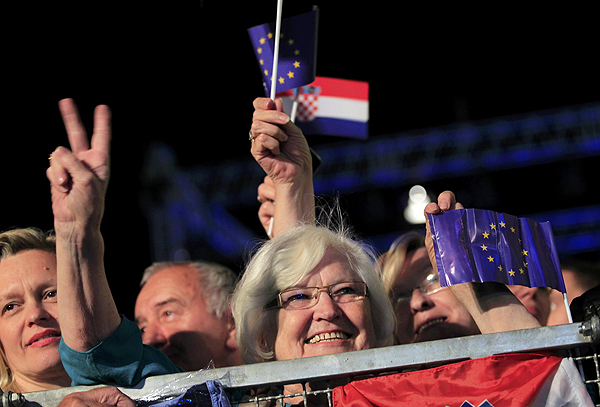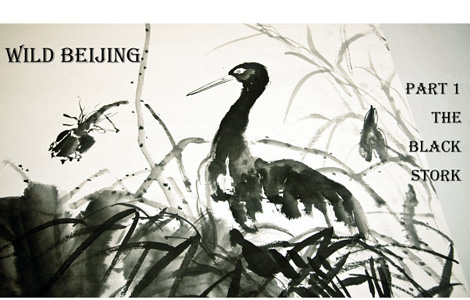Forged in war, ex-Yugoslav Croatia joins EU
Updated: 2013-07-01 14:15
(Agencies)
|
|||||||||||
ZAGREB -- To fireworks, cannon-fire and Beethoven's Ode to Joy, Croatia joined the European Union at midnight on Sunday, two decades since fighting itself free of Yugoslavia.
Thousands packed Zagreb's Ban Jelacic square to celebrate the accession of the bloc's 28th member, setting aside for a moment the troubles of a country in its fifth year of recession.
"This will change the life of this nation for good. I welcome you wholeheartedly," Herman Van Rompuy, president of the European Council, told the crowd.
Bells rang out from Zagreb Cathedral and two men in white abseiled from a nearby building carrying the flag of the EU.
The mainly Catholic country of 4.4 million people becomes only the second of the seven states carved from federal Yugoslavia to enter the EU, following Slovenia in 2004.
It marks a milestone in the region's recovery from the wars of the 1990s, which gave the world the term "ethnic cleansing" and killed over 120,000 people, 20,000 of them in Croatia.
It is also the first expansion of the EU eastwards since 2007, when Romania and Bulgaria joined, and the "Big Bang" enlargement of 2004 when 10 new members came aboard.
The global economic crisis has since posed unprecedented challenges to the unity of the bloc, undermining popular support and fuelling doubts over the wisdom of further expansion to the former Yugoslavia.
The troubles of the EU have fed into doubts among many Croatians over their future inside the bloc, the pull of which helped stabilise the Balkans.
"I was so jealous of the others who joined before us," said Ivan Borovec, as he queued to pass tight security checks to enter the square. "It would have been better if we had joined in 2004 but I still hope it will be better, particularly for our children."
At Croatia's eastern border with Serbia, its chief foe during the collapse of Yugoslavia, officials unveiled a sign that read "Croatia-EU".
The ex-Yugoslav republics of Serbia, Bosnia, Macedonia, Montenegro and Kosovo are years away from EU accession.
Their leaders were present in Zagreb, in a show of unity among states that are still coming to terms with their parting.
Today's Top News
China's June manufacturing PMI falls to 50.1
Russia's Putin signs anti-gay measures into law
Fugitive terror suspect nabbed in Xinjiang
New NSA spying allegations rile EU
New exit and entry law effective
Massive debt plagues local gov't
Foreign minister makes ASEAN debut
Ministry drafts child welfare system
Hot Topics
Lunar probe , China growth forecasts, Emission rules get tougher, China seen through 'colored lens', International board,
Editor's Picks

|

|

|

|

|

|






